Pioneering technology breathes life into computational software agents for immersive and interactive applications
The paper introduces generative agents, computational software agents designed to simulate believable human behavior in interactive applications like immersive environments, communication rehearsal spaces, and prototyping tools. These agents perform activities such as waking up, cooking breakfast, going to work, and even pursuing artistic endeavors. They form opinions, notice one another, initiate conversations, and reflect on past experiences to plan future actions.
Key Points:
- Introduction of generative agents, computational software agents that simulate believable human behavior.
- Architecture extending large language models to store, synthesize, and retrieve agent experiences using natural language.
- Instantiation of generative agents in an interactive sandbox environment inspired by The Sims.
- Evaluation of generative agents demonstrating believable individual and emergent social behaviors.
- Exploration of future research directions and potential improvements in generative agent architecture.
The architecture of generative agents extends large language models to store a complete record of the agent’s experiences using natural language, synthesizing those memories over time into higher-level reflections, and retrieving them dynamically to plan behavior. The study showcases generative agents in an interactive sandbox environment inspired by The Sims, where users can interact with a small town of 25 agents using natural language.
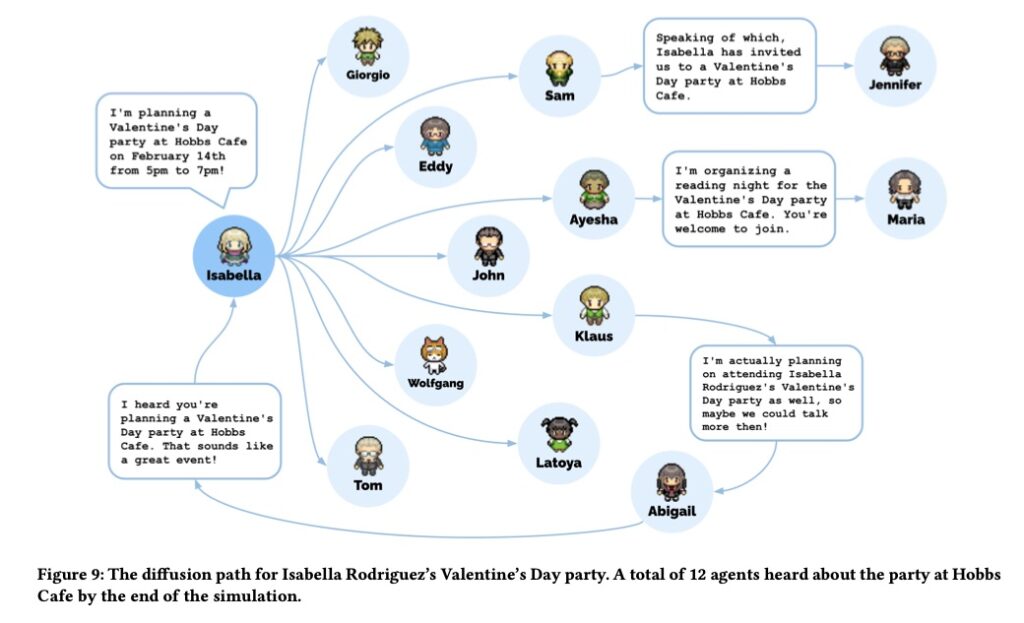
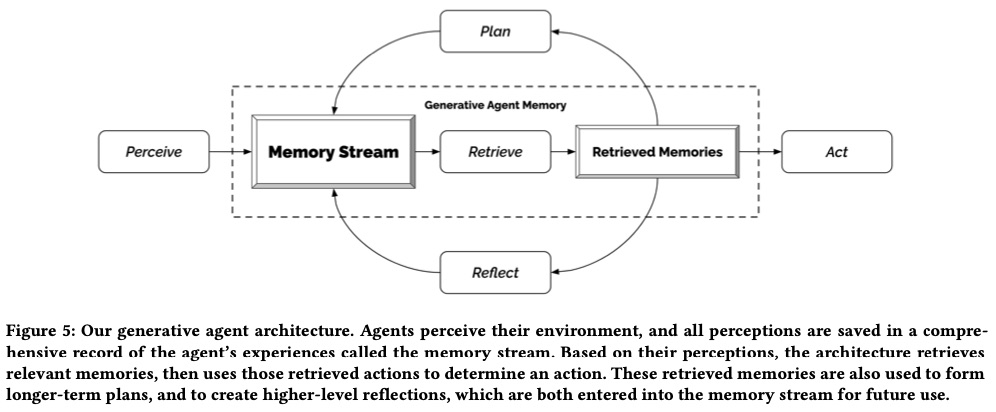
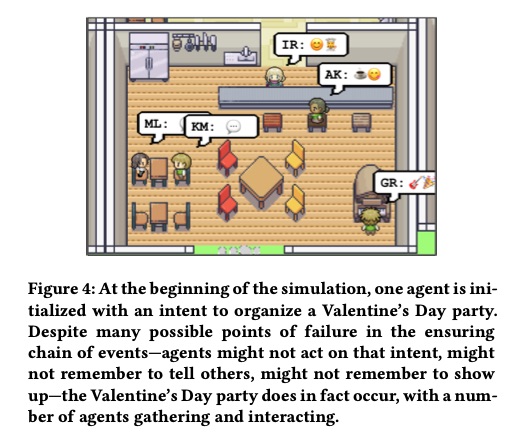
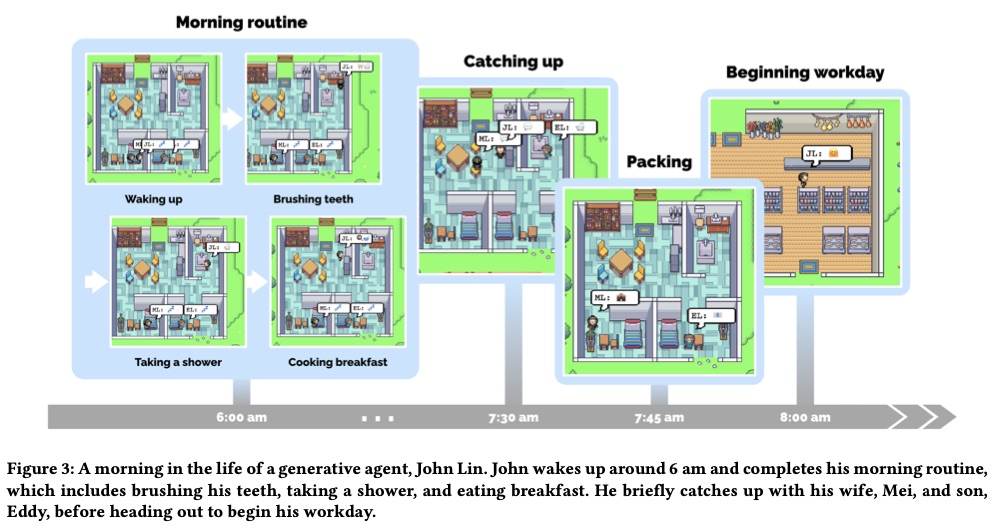
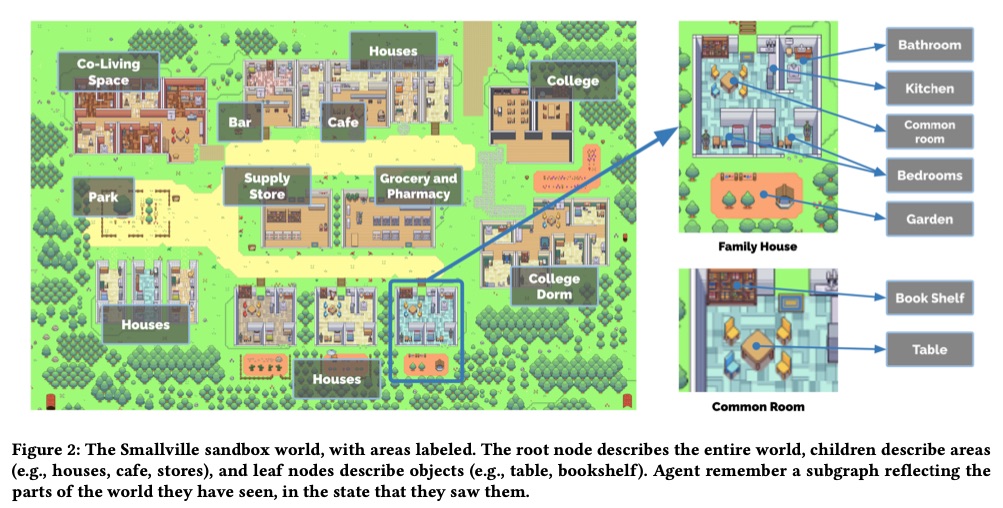
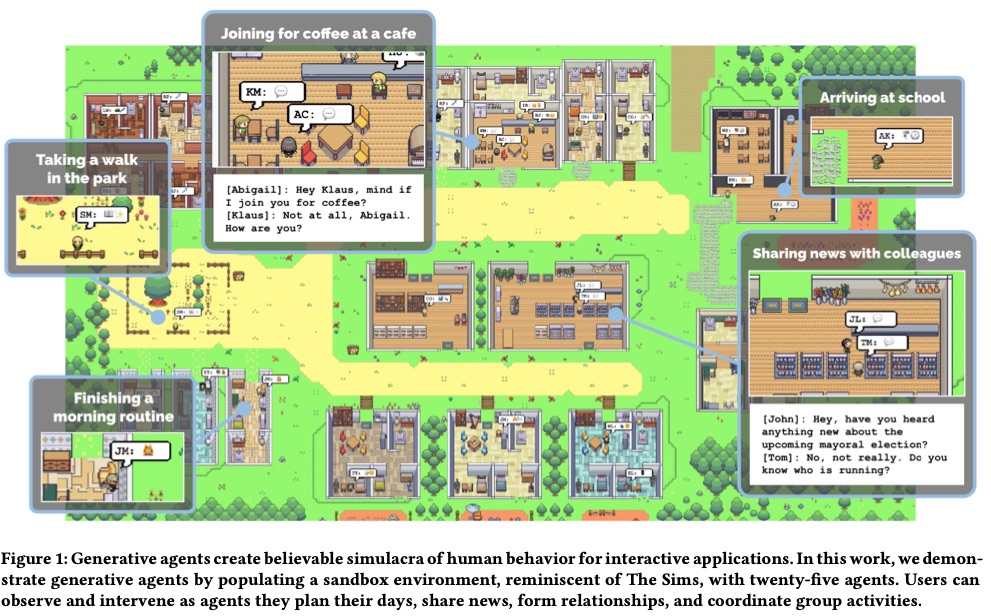
The evaluation of generative agents demonstrates believable individual and emergent social behaviors, such as autonomously spreading party invitations, making new acquaintances, asking each other out on dates, and coordinating attendance at the event. Ablation studies show that the components of the agent architecture – observation, planning, and reflection – are critical for believable agent behavior.
Future research can improve the generative agent architecture, enhance real-time interactivity, explore parallelizing agents, and address the limitations and robustness issues of generative agents. The paper acknowledges the potential biases of language models and suggests further work on value alignment to mitigate these concerns. Overall, this work lays the groundwork for architectural and interaction patterns that enable believable simulations of human behavior, reminiscent of the fictional world of Westworld.
